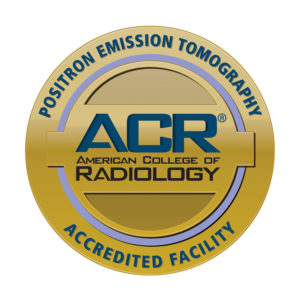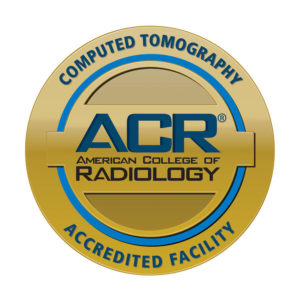(Positron Emission Tomography)
This imaging gauges the severity and spread of cancer. PET scans can give physicians a way to detect cancer early and in more treatable stages – sometimes months before a tumor becomes evident through other forms of diagnostic testing. Cancer Partners was one of the first clinics in Nebraska to incorporate PET techniques into our cancer care.

PSMA PET/CT is used to diagnose and stage prostate cancer. A radioactive tracer drug is injected and attaches to PSMA proteins. The PET scan detects the concentrated PSMA tracer, pinpointing these tumors for more effective treatment.
This injection is used to detect metabolically-active lesions among several different types of cancers. It is the most common radiotracer used in PET imaging.
This is a radioactive substance that is injected into the vein to find out if cancer has spread to the bone.
This radioactive substance is injected in men with suspected prostate cancer recurrence. If you have elevated PSA levels following prior treatment, then an Axumin PET scan may detect recurrent disease.
This is a radioactive substance that is injected during a PET scan to help evaluate primary and metastatic neuroendocrine tumors.
This is a recent FDA-approved radioactive substance that is injected during a PET scan to help evaluate primary and metastatic neuroendocrine tumors. It has high sensitivity and specificity in patients, which leads to better detection for tumor restaging purposes.
(Computed Tomography)
CT scans produce detailed, cross-sectional images of the inside of the body. Cancer Partners offers general CT scans, in addition to lung screening.
Additional Therapies
This medication is combined with a radioactive substance and is used to treat prostate cancer that no longer responds to hormonal or surgical treatment.
This is a breakthrough, radioactive injection that is used to treat certain types of neuroendocrine tumors in patients whose cancer has not responded well to other treatments.
This medication is combined with a radioactive substance and used along with rituximab to treat B-cell non-Hodgkin’s follicular lymphoma in patients whose cancer has returned or has not responded to other treatments.
This radioactive substance is injected in patients to help relieve bone pain in patients with bone cancer and other cancers that have spread to the bone.
Cancer Partners has voluntarily gone through a rigorous review process to make sure we meet and exceed nationally accepted standards of care.
Every aspect of the ACR accreditation process is overseen by board-certified, expert radiologists and medical physicists in advanced diagnostic imaging.

Our facility has voluntarily gone through a rigorous review process to ensure that we meet nationally accepted standards of care.
Our personnel is well qualified, through education and certification, to perform medical imaging, interpret your images and administer your radiation therapy treatments.
Our equipment is appropriate for the test or treatment you will receive, and our facility meets or exceeds quality assurance and safety guidelines.
When you see the ACR gold seal, you can be assured that your prescribed imaging test will be done at a facility that has met the highest level of imaging quality and radiation safety. The facility and its personnel have gone through a comprehensive review to earn accreditation status by the American College of Radiology (ACR), the largest and oldest imaging accrediting body in the United States and a professional organization of 34,000 physicians.
The first effective PET/CT scan for prostate cancer patients in Nebraska was completed at Cancer Partners.


